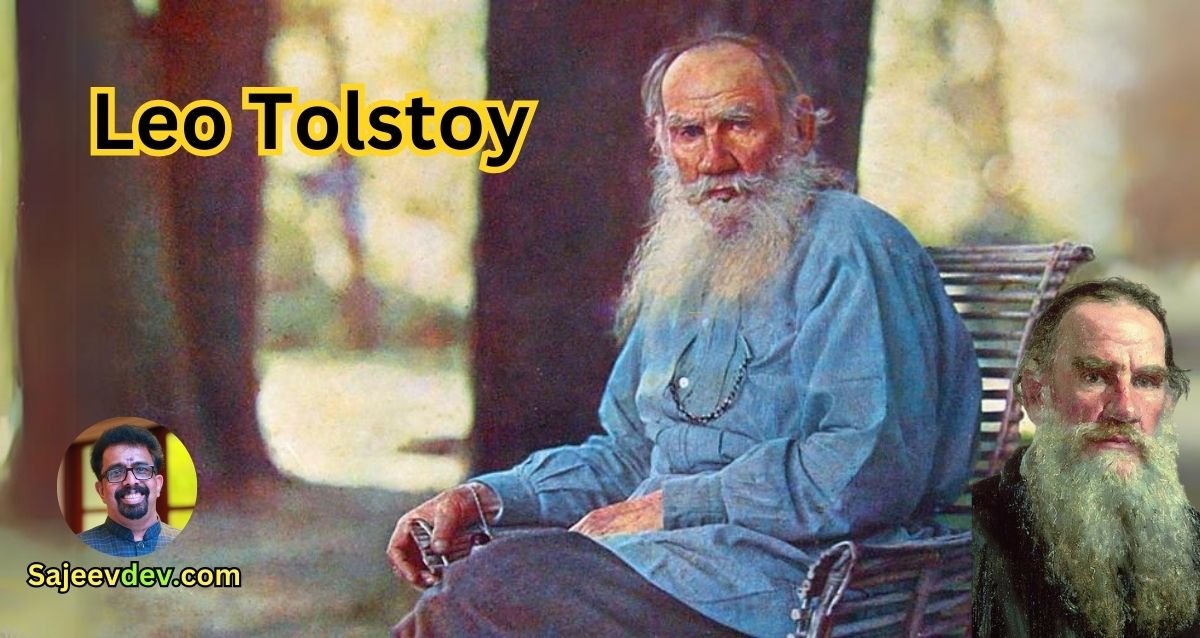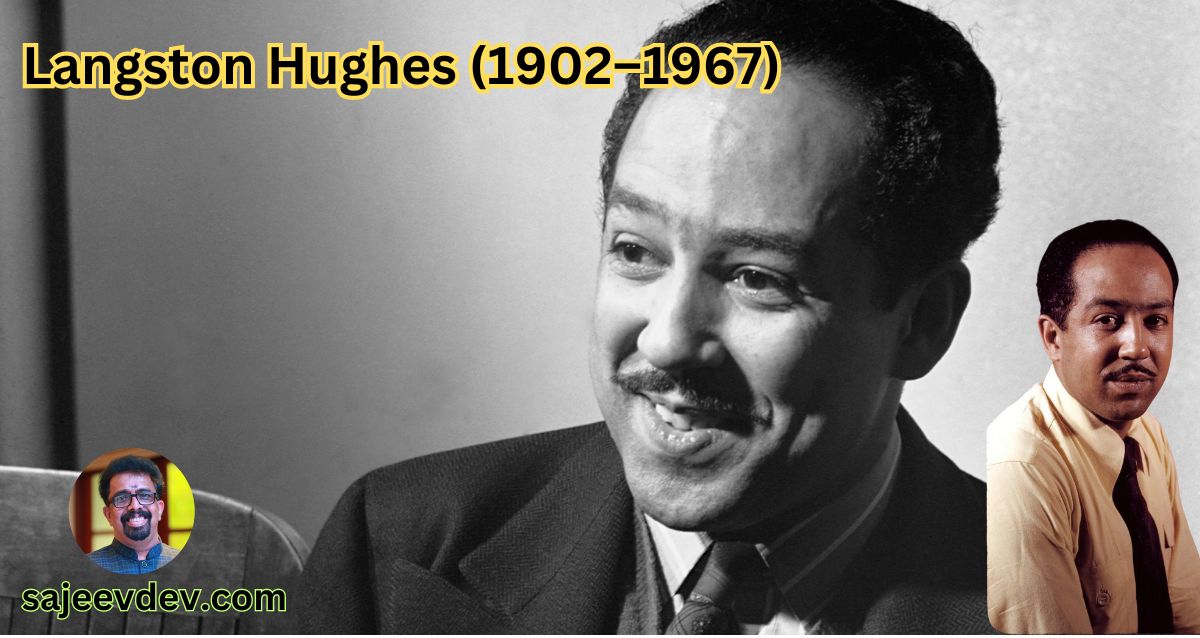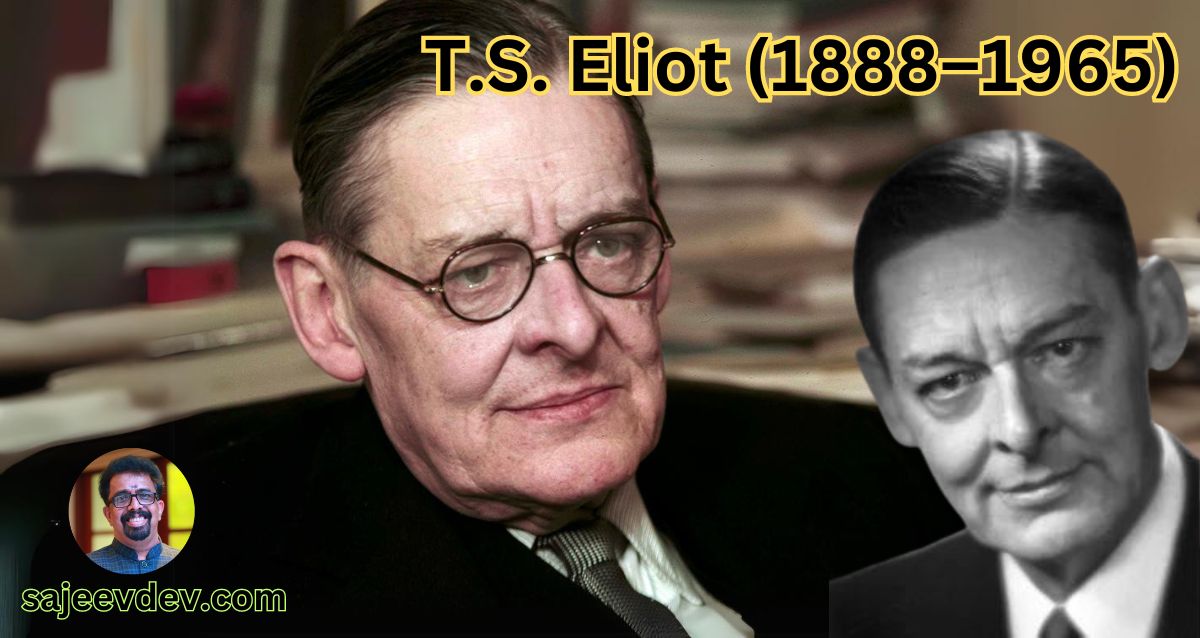The Significance of Leo Tolstoy
Leo Tolstoy stands as a towering figure in the history of literature, acclaimed globally for his profound contributions to the art of storytelling. Renowned as one of the greatest novelists of all time, Tolstoy’s works have left an indelible mark on world literature. His expansive narratives and deep philosophical inquiries have continued to resonate with readers well beyond his era, offering timeless insights into the human condition.
Among his most celebrated works, novels such as War and Peace and Anna Karenina are particularly noted for their intricate portrayals of Russian society. Tolstoy’s keen observations on human nature and the complexities of moral dilemmas set his writings apart, making them essential explorations of life’s fundamental questions. These novels, while deeply rooted in the cultural and historical context of 19th-century Russia, transcend their specific settings to address universal themes, thus appealing to a diverse readership across generations.
Tolstoy’s impact on literature extends beyond his narrative prowess. His exploration of existential themes has inspired countless writers and thinkers. The rich character development and intricate plotting in his works reflect his exceptional understanding of the myriad facets of human experience. By delving into the nuances of personal and societal struggles, Tolstoy invites readers to reflect on their moral and ethical judgments, highlighting the perpetual relevance of his literary legacy.
In sum, Leo Tolstoy’s contributions to literature are significant not merely because of their narrative richness, but also due to their enduring philosophical depth. His ability to weave detailed, multifaceted characters and moral quandaries into compelling stories ensures that his writings remain pivotal in literary studies. Tolstoy’s enduring relevance underscores not only his mastery as a novelist but also his profound understanding of the human spirit. Through his works, Tolstoy continues to be a quintessential figure in the literary canon, his legacy profoundly influencing both contemporary literature and philosophical discourse.
Early Life and Background
Born on September 9, 1828, in the Russian countryside estate of Yasnaya Polyana, Leo Tolstoy entered the world into an aristocratic family. Being the fourth of five children, he experienced the complexities of life from an early age, marred by the death of his parents when he was just a child. This tragic start imbued his early years with a sense of loss and reflection, which later deeply influenced his literary endeavors. The estate, a hallmark of Russian agrarian society, provided a scenic backdrop that would later find its way into his works, portraying the stark contrast between the serene environment and the turbulence of human experiences.
Tolstoy’s noble lineage afforded him an education that was uncommon for many Russians at the time. He initially received tutoring at home before enrolling in the University of Kazan at the age of 16, where he aspired to study Oriental languages and later law. However, his indifferent attitude towards formal education led to his departure from the university without a degree. Despite this, his inquisitive spirit never waned; he continued to educate himself through voracious reading and keen observation of the world around him. His early intellectual pursuits laid the groundwork for his philosophical inquiries and narrative techniques that would redefine Russian literature.
The formative years at Yasnaya Polyana and Kazan exposed Tolstoy to a mosaic of societal structures, from the privilege of aristocracy to the stark realities of serfdom. These experiences were instrumental in shaping his worldview, as they imbued him with a profound understanding of human nature and the societal divides that would become central themes in his future writings. He started to question the status quo and the moral underpinnings of life, setting the stage for his evolution into a revolutionary novelist. The intersection of his personal losses, aristocratic heritage, and educational endeavors created a fertile ground for the groundbreaking literary works that Tolstoy would eventually produce.
Literary Beginnings: Early Works and Themes
Leo Tolstoy’s entry into the literary world was marked by his poignant exploration of personal and societal themes, which were deeply influenced by his diverse experiences, notably his time in the military. Tolstoy’s early works, including “Childhood” (1852) and “The Raid” (1853), highlight his burgeoning talent and set the foundation for his future masterpieces.
Upon joining the Russian army in the Caucasus in 1851, Tolstoy witnessed firsthand the complexities of human nature and societal conflict. These formative experiences provided him with rich material for his writing. In “Childhood,” he captures the innocence and introspection of youth through the autobiographical journey of his protagonist, Nikolai Irteniev. The work delves into themes such as the loss of innocence, familial ties, and the search for meaning, reflecting Tolstoy’s inner conflicts and his quest for self-understanding.
“The Raid,” based on Tolstoy’s military experiences, presents a stark contrast to the gentle reminiscences of “Childhood.” It portrays the harsh realities of war, focusing on the psychological and moral dilemmas faced by soldiers. The novella is a precursor to Tolstoy’s later, more expansive examinations of war and peace, exemplified by its keen observations of human behavior under duress and the ethical ambiguities of combat.
These early works reveal key themes that would permeate Tolstoy’s later novels, such as the interplay between personal morality and societal structures, and the profound impact of individual experiences on one’s worldview. His commitment to realism and his ability to depict the nuances of human emotion and social interaction laid the groundwork for the psychological depth and narrative complexity that characterize his most celebrated works.
Thus, Tolstoy’s initial literary forays were more than mere beginnings; they were the crucibles in which his artistic vision and thematic preoccupations were forged, setting the stage for his enduring contributions to world literature.
War and Peace: Epic Novel of Russian Society
‘War and Peace’ stands as one of Leo Tolstoy’s most monumental literary achievements, renowned for its expansive narrative and profound insight into Russian society during the Napoleonic Wars. Set against the backdrop of early 19th-century Russia, the novel meticulously intertwines the fates of its myriad characters with the grand historical events that shape their lives. Tolstoy commenced writing this epic work in the 1860s, weaving together a rich tapestry of fictional narrative and historical discourse.
The novel follows several aristocratic families, primarily the Rostovs, the Bolkonskys, and the Bezukhovs, navigating through personal ambitions, romantic entanglements, and the harsh realities of war. Through these intimate stories, Tolstoy presents a comprehensive portrayal of Russian society, delving deep into its multifaceted social hierarchies and the impact of Western influences brought about by the Napoleonic invasion. His characters are intensely human, each grappling with inner conflicts and moral dilemmas that resonate with the reader.
One of the most distinctive aspects of ‘War and Peace’ is Tolstoy’s narrative style. Rather than adhering strictly to the conventions of historical fiction or the novel, he employs a fluid narrative structure that vacillates between the personal and the universal. This approach allows for extensive philosophical digressions where Tolstoy examines themes such as fate, free will, and the nature of power. These reflections are not mere asides but integral to the work’s thematic richness, offering readers a deeper understanding of the human condition.
Furthermore, Tolstoy’s philosophical musings in ‘War and Peace’ challenge conventional interpretations of history. He suggests that history is not shaped solely by great leaders and momentous battles but is also profoundly influenced by the collective actions and experiences of ordinary people. This democratizing view of historical agency underscores the intricate interplay between individual lives and larger historical forces.
In conclusion, ‘War and Peace’ is much more than a novel about war; it is a detailed exploration of human life and society. Tolstoy’s masterpiece continues to captivate readers with its compelling narrative and profound philosophical insights, securing its place as a timeless exploration of the complexity of human existence.
Anna Karenina: A Study of Love and Morality
Leo Tolstoy’s “Anna Karenina” is often hailed as one of his finest works, painting a vivid portrait of love, infidelity, and the inevitable conflicts of societal norms. The novel revolves around the lives of its two main characters: Anna Karenina and Konstantin Dmitrievich Levin. Anna is a beautiful, aristocratic woman trapped in a loveless marriage with Alexei Alexandrovich Karenin, while Levin is a landowner struggling with his own existential dilemmas and search for happiness.
The central narrative follows Anna as she embarks on an adulterous affair with the dashing Count Alexei Vronsky. This illicit relationship is steeped in passion but ultimately leads to her social ostracization, mental anguish, and tragic demise. Through this turbulent love affair, Tolstoy meticulously dissects the moral and ethical fabric of Russian aristocratic society. His clear and often ruthless observation of human emotions exposes the hollowness and hypocrisy prevalent among the Russian elite of the time, making “Anna Karenina” a pointed social critique.
Contrasted with Anna’s narrative is Levin’s journey, which offers a balance of perspectives on love and morality. Levin’s courtship and eventual marriage to Kitty Shcherbatskaya depict an idealized version of conjugal love, grounded in mutual respect and genuine affection. Tolstoy juxtaposes these two love stories, thereby highlighting not only the stark differences in their paths but also the broader implications on the search for personal fulfillment and moral integrity.
Through profound exploration of themes such as love, lust, honor, and societal expectations, Tolstoy poses critical questions regarding the human condition. Is genuine love attainable within the rigid confines of societal norms? How do personal desires conflict with moral obligations? By weaving together the intertwined fates of his characters, Tolstoy artfully underscores the perennial struggle between individual aspirations and collective morals.
Thus, “Anna Karenina” remains a seminal work, offering penetrating insights into the dynamics of love and morality while serving as a powerful critique of the Russian aristocracy. Tolstoy’s masterful narrative invites readers to reflect on the broader implications of his characters’ actions and the societal constraints that shape their lives.
Tolstoy’s Philosophical and Moral Evolution
In his later years, Leo Tolstoy experienced a profound personal transformation that significantly altered his philosophical and moral outlook. This period is marked by his embrace of Christian anarchism and pacifism, philosophies that not only influenced his later writings but also defined his actions and beliefs. Tolstoy’s non-fiction work, “The Kingdom of God is Within You,” serves as a cornerstone of his new ideological stance. In this seminal text, he critiques institutionalized religion and advocates for a form of Christianity centered on personal spiritual integrity and nonviolent resistance.
Tolstoy’s shift towards these principles stemmed from a deep dissatisfaction with the societal and religious norms of his time. He became critical of the Russian Orthodox Church and the state’s coercive power, arguing that true Christian teachings reject violence in all forms. His writings during this period reflect his commitment to nonviolent principles and a simple, ascetic lifestyle. Works such as “What I Believe” and “A Confession” further elucidate his quest for a meaningful existence rooted in ethical living and spiritual authenticity.
This philosophical evolution significantly influenced both his fictional and non-fictional works. Novels like “Resurrection” embody Tolstoy’s disdain for social injustices and his advocacy for moral reform. His later stories often provide a stark critique of the existing social order, highlighting the need for personal and collective moral awakening. The emphasis on pacifism and social reform in his writings inspired various global leaders and movements, including Mahatma Gandhi’s nonviolent resistance campaigns and Martin Luther King Jr.’s civil rights activism.
Tolstoy’s commitment to his evolved moral philosophy extended beyond his literary endeavors. He adopted a lifestyle that mirrored his beliefs, renouncing his aristocratic privileges and seeking to live in harmony with the common people. This holistic approach to his principles underscored his dedication to creating a just and equitable society through peaceful means.
Legacy and Influence on Literature
Leo Tolstoy’s influence on world literature and philosophy remains profound and enduring. His narrative techniques, ethical concerns, and philosophical inquiries established a template that has inspired countless writers and intellectuals. A key aspect of Tolstoy’s legacy is his capacity to weave intricate human psychology with grand sociopolitical landscapes, a hallmark seen in his masterpieces such as “War and Peace” and “Anna Karenina.” This approach has led many to regard Tolstoy as not just a novelist, but a historian and philosopher whose works transcend the boundaries of fiction.
Beyond the Russian literary sphere, Tolstoy’s impact has permeated global literature. For instance, the existential depths explored by Fyodor Dostoevsky share a resonance with Tolstoy’s introspective narratives. In the West, authors such as Virginia Woolf admired his exploration of the inner lives of characters, a style that influenced modernist literature profoundly. American writers like Ernest Hemingway have also cited Tolstoy’s detailed realism and deep humanism as a significant influence, particularly in works that delve into the human condition and moral complexities.
Tolstoy’s philosophical insights, particularly his later works on non-violent resistance, profoundly impacted social and political thought. This philosophical stance was a pivotal influence on figures such as Mahatma Gandhi and Martin Luther King Jr., who drew from Tolstoy’s advocacy for passive resistance and ethical living.
Reception of Tolstoy’s works has evolved over time, adapting to cultural and intellectual shifts while retaining their essential impact. Adaptations of his novels into films and television series have introduced his narratives to new generations, ensuring his themes of love, redemption, and societal dynamics remain relevant. Modern media continues to explore his intricate storytelling, testifying to the timelessness of his contributions to world literature.
The Enduring Relevance of Tolstoy’s Works
Leo Tolstoy’s contributions to literature and philosophy have left an indelible mark on the world. His novels, notably “War and Peace” and “Anna Karenina,” delve deep into the human condition, exploring themes of love, conflict, and morality with unparalleled nuance. Tolstoy’s narrative craft and his ability to portray the vast tapestry of human experience ensure his works remain compelling to readers and scholars alike.
Tolstoy’s profound human insights and relentless moral questioning continue to resonate today. His exploration of ethical dilemmas and the quest for spiritual fulfillment reflect universal concerns, transcending the specificities of his 19th-century Russian context. Modern audiences find in Tolstoy’s characters and plots an enduring relevance, allowing for introspection and a greater understanding of the complexities of life.
Moreover, Tolstoy’s literary techniques, including his deep psychological realism and multi-faceted character development, have influenced countless writers and literary movements. His ability to depict the intricacies of human emotion and societal structures with such precision has cemented his place in the global literary canon. The timeless nature of Tolstoy’s contributions ensures that his works are not merely historical artifacts but living texts that continue to engage and challenge contemporary readers.
In summary, the legacy of Leo Tolstoy is a testament to the lasting power of literature to provoke thought, inspire change, and reflect the enduring quest for meaning in human life. His works will undoubtedly continue to attract and fascinate future generations, underscoring the timeless and universal nature of his genius.



